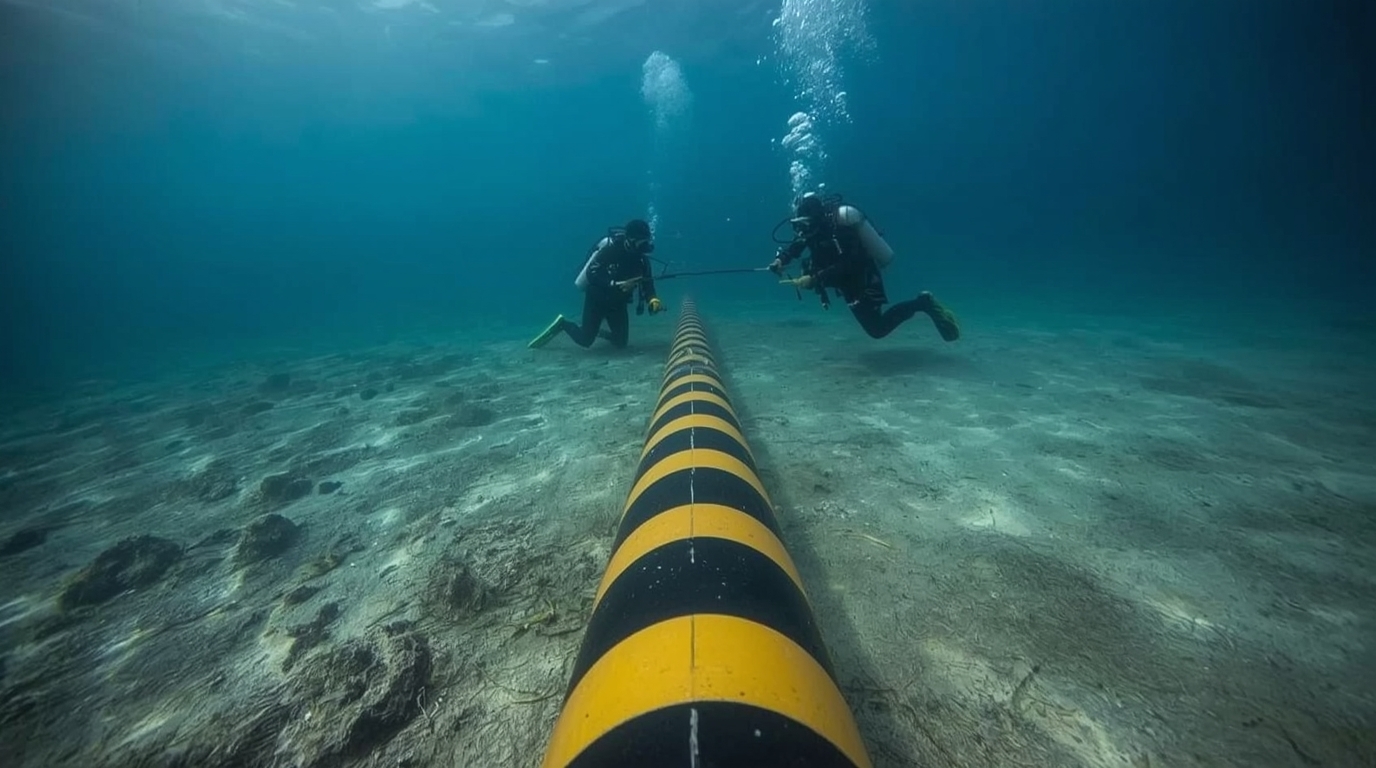
Taiwan dipende in modo critico dalle proprie infrastrutture sottomarine, essenziali per garantire comunicazioni e fornitura di energia. Negli ultimi anni, tuttavia, si è registrata una serie di episodi di danneggiamento e taglio doloso dei cavi che collegano l’isola con il resto del mondo.
L’ex ministro della Difesa slovacco Jaroslav Nad’ ha definito queste infrastrutture un vero e proprio “campo di battaglia invisibile”, sottolineando che la loro compromissione da parte di un potenziale avversario potrebbe avere conseguenze dirette sulle decisioni militari e sulla sicurezza strategica. Nad’ ha invitato Taiwan e i Paesi europei a collaborare per sviluppare un sistema di responsabilità condiviso in materia di sicurezza sottomarina.
L’isola è collegata al mondo da 14 cavi sottomarini internazionali che trasportano oltre il 99% del traffico Internet esterno. Questi collegamenti con Nord America, Nord-est e Sud-est asiatico costituiscono la dorsale digitale di Taiwan.
Secondo Huang Sheng-hsiung, presidente del Taiwan Network Information Center (TWNIC), il tasso di danno ai cavi sottomarini nel Paese supera di 25-50 volte la media globale. Le cause principali includono l‘attività dei pescherecci a strascico, l’estrazione illegale di sabbia e l’aggrovigliamento delle ancore.
Sebbene non vi siano prove dirette che colleghino tali episodi a operazioni orchestrate da Pechino, Huang ha evidenziato che la frequenza anomala degli incidenti intorno a Taiwan lascia intendere un peso significativo del fattore umano.
Nella notte del 25 febbraio 2025, il cavo “Taiwan-Penghu n.3” è stato completamente tranciato. Chunghwa Telecom ha immediatamente avvertito la Guardia Costiera e il Consiglio per gli Affari Oceanici, che hanno fermato la nave cargo togolese Hong Tai a circa sei miglia nautiche dal porto di Tainan Jiangjun.
L’imbarcazione, sospettata di avere legami con investitori cinesi, è stata condotta al porto di Anping. Il capitano Wang, accusato di aver gettato l’ancora in una zona vietata, è stato riconosciuto colpevole di violazione del Telecommunications Management Act e condannato a tre anni di reclusione dal Tribunale distrettuale di Tainan. Il verdetto è ancora appellabile.
Il presidente del Consiglio per gli Affari Oceanici, Kuan Bi-ling, ha dichiarato che episodi simili si ripetono con navi che restano ferme nelle acque di Taiwan e, approfittando di condizioni marine avverse, tagliano deliberatamente i cavi. Kuan non esclude che dietro tali operazioni si muova la cosiddetta “zona grigia” del Partito Comunista Cinese.
Il 28 ottobre, durante il “Forum di cooperazione sulla sicurezza dei cavi sottomarini Taiwan-Europa 2025”, organizzato dal Centro per la Scienza, la Democrazia e la Società (DSET), dal Formosa Club e dal Ministero degli Esteri, Jaroslav Nad’ ha ricordato che il 97% delle comunicazioni globali su Internet e circa 10 trilioni di dollari di transazioni finanziarie passano dai cavi sottomarini.
“Se questi cavi vengono danneggiati o intercettati, le operazioni militari, la logistica e la raccolta d’intelligence ne risentono immediatamente. Si tratta di una forma di guerra ibrida difficile da attribuire”, ha spiegato.
L’ex ministro ha evidenziato che gli episodi di sabotaggio si verificano spesso nelle zone economiche esclusive e che molte imbarcazioni coinvolte disattivano i sistemi di identificazione automatica (AIS) per nascondere la propria posizione. “Quando si tratta di atti di aggressione, è pericoloso rimandare la risposta: il rischio aumenta con il tempo”, ha aggiunto.
Nad’ ha ammonito che il sabotaggio di cavi può paralizzare le capacità di comando militare, impedendo ai leader di ricevere dati aggiornati e provocando errori strategici. Ha citato simulazioni della NATO su possibili tagli di cavi transatlantici da parte di sottomarini russi e un documentario cinese che mostra la capacità di operare a profondità di 4.000 metri.
Secondo Nad’, il peggiore scenario possibile è l’intercettazione o la manipolazione dei messaggi militari, che potrebbe causare paralisi operative su larga scala.
L’ex ministro ha invitato Taiwan e l’Europa a costruire meccanismi comuni di responsabilità e trasparenza, suggerendo di denunciare pubblicamente gli autori di sabotaggi, come già avvenuto per le attività russe nel Mar Baltico.
Alla fine del 2024, due cavi sottomarini nel Baltico si ruppero nello stesso punto, suscitando sospetti di sabotaggio. Sebbene le indagini successive abbiano ridimensionato l’ipotesi di una “guerra ibrida”, Nad’ ha spiegato che le navi coinvolte erano riconducibili a società registrate in Asia ma gestite da imprese russe. “È un quadro complesso – ha concluso – ma la frequenza crescente di questi atti suggerisce una strategia deliberata di destabilizzazione”.
Ti è piaciuto questo articolo? Ne stiamo discutendo nella nostra Community su LinkedIn, Facebook e Instagram. Seguici anche su Google News, per ricevere aggiornamenti quotidiani sulla sicurezza informatica o Scrivici se desideri segnalarci notizie, approfondimenti o contributi da pubblicare.

 Cybercrime
CybercrimeLe autorità tedesche hanno recentemente lanciato un avviso riguardante una sofisticata campagna di phishing che prende di mira gli utenti di Signal in Germania e nel resto d’Europa. L’attacco si concentra su profili specifici, tra…
 Innovazione
InnovazioneL’evoluzione dell’Intelligenza Artificiale ha superato una nuova, inquietante frontiera. Se fino a ieri parlavamo di algoritmi confinati dietro uno schermo, oggi ci troviamo di fronte al concetto di “Meatspace Layer”: un’infrastruttura dove le macchine non…
 Cybercrime
CybercrimeNegli ultimi anni, la sicurezza delle reti ha affrontato minacce sempre più sofisticate, capaci di aggirare le difese tradizionali e di penetrare negli strati più profondi delle infrastrutture. Un’analisi recente ha portato alla luce uno…
 Vulnerabilità
VulnerabilitàNegli ultimi tempi, la piattaforma di automazione n8n sta affrontando una serie crescente di bug di sicurezza. n8n è una piattaforma di automazione che trasforma task complessi in operazioni semplici e veloci. Con pochi click…
 Innovazione
InnovazioneArticolo scritto con la collaborazione di Giovanni Pollola. Per anni, “IA a bordo dei satelliti” serviva soprattutto a “ripulire” i dati: meno rumore nelle immagini e nei dati acquisiti attraverso i vari payload multisensoriali, meno…